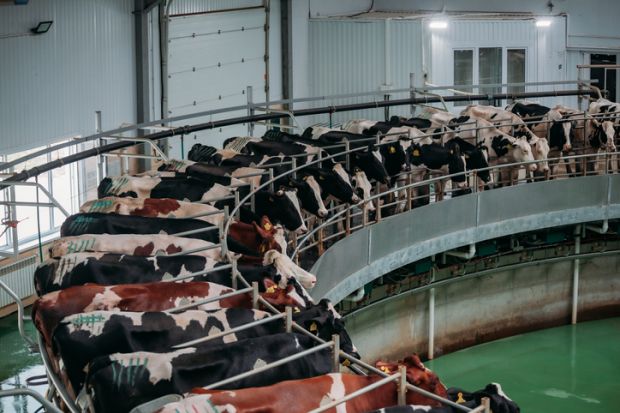The proportion of their income that UK business schools transfer to their parent university continues to rise, a new survey shows.
The annual survey of deans at UK business schools, conducted by the Chartered Association of Business Schools, found that contributions to the parent institution accounted for the majority of spending at 62 per cent of business schools in 2019-20.
In the past, universities have been accused of seeing their business schools as “cash cows” and the reliance on their income appears to be growing.
The survey showed that compared with two years ago, a greater proportion of business schools were now paying at least 60 per cent of their income to their parent university: this year 43 per cent of business schools contributed this much, compared with 22 per cent in 2017-18.
This year 6 per cent of the schools surveyed paid between 91 and 100 per cent of their income to their parent institution, whereas two years ago no institution reported contributing such a large proportion.
It comes as business schools face funding shortfalls as the coronavirus pandemic, and continued uncertainty over Brexit, impact international recruitment. In the UK, one in three international students are doing a business-related degree.
The survey showed that nearly a fifth of schools have already reported lower enrolment numbers this year. For European Union undergraduate and postgraduate students, 40 per cent and 43 per cent, respectively, of schools reported a slightly or significantly lower proportion of converted applications.
For non-EU international students, 47 per cent and 58 per cent of business schools reported a lower application conversion rate for undergraduate and postgraduate students, respectively.
It also found that leaders expected their income to drop in the 2020-21 academic year, with 50 per cent of the schools surveyed anticipating a fall in their income, of which 18 per cent expected a significant fall.
Robert MacIntosh, chair of the business school association, and head of the school of social sciences at Heriot-Watt University, said that “the longer the uncertainty around the circumstances for international travel go on, the more challenge there is around international student recruitment and that’s by far the single biggest driver for both business school income, and therefore parent university financial health”.
While it’s not new that universities are highly reliant on successful business schools, Professor MacIntosh said that there were pressures in the sector – such as increasing costs of salaries, utilities and pensions – which were forcing that reliance up, rather than down.
He warned there was also a danger “that the true costs of offering an excellent experience in a business school are underestimated”. This included the need for dedicated careers support and industry liaisons, he added.
“I do think that the contribution rate is always a tricky conversation but the inexorable pressure to make it bigger needs to sit alongside the realisation of the cost of a truly excellent business-related experience at a university,” Professor MacIntosh said.
Forty per cent of business schools said that they have been set the hard task of increasing the number of international students next year but Professor MacIntosh warned he was not sure how easily they would be able to achieve that.
It was “fantastic” that the government had reintroduced post-study work permits but anything that the government could do to improve certainty for business schools, particularly around the often forgotten but significant uncertainty around Brexit arrangements, was desperately needed, he said.




